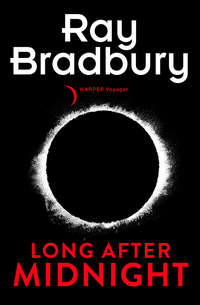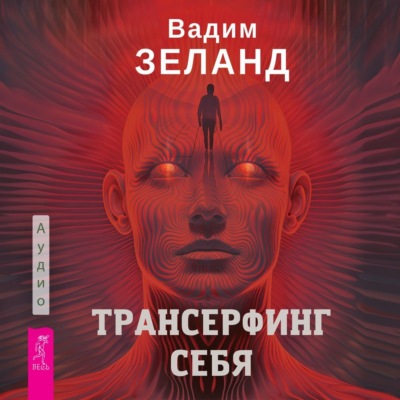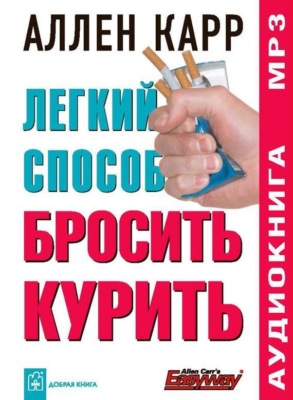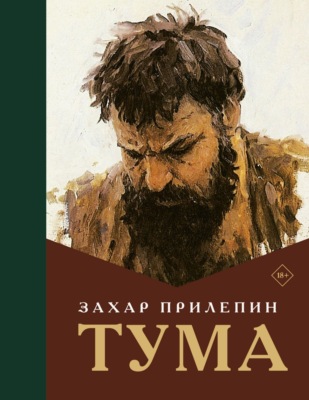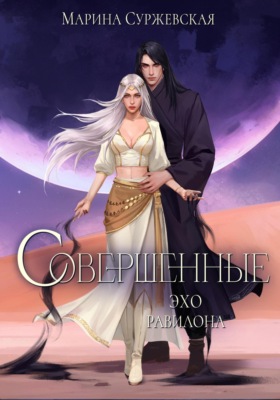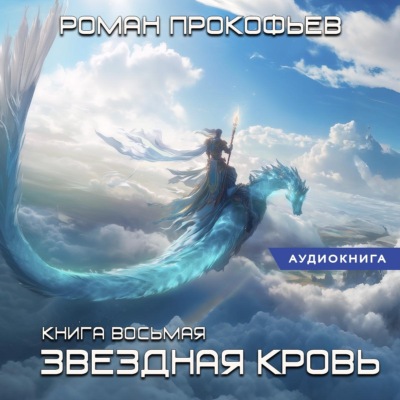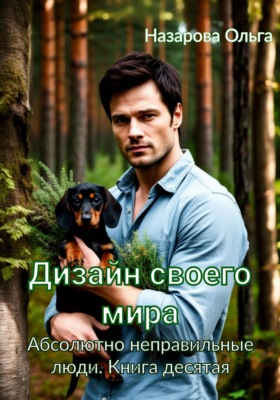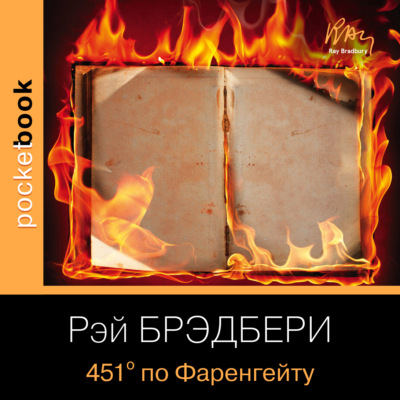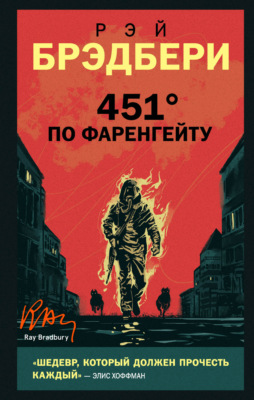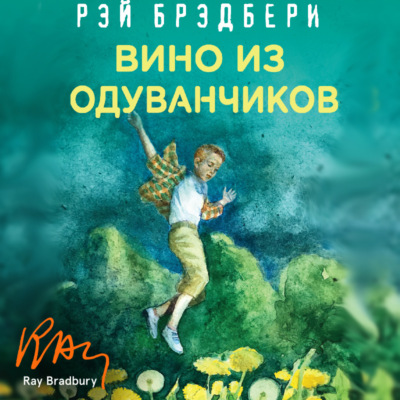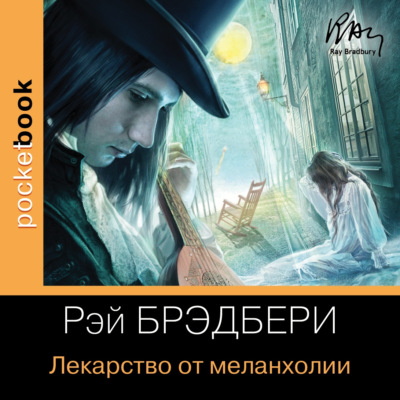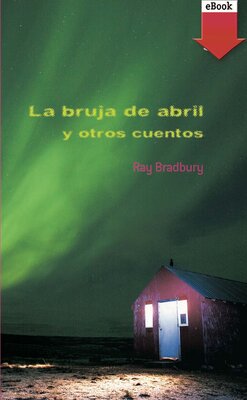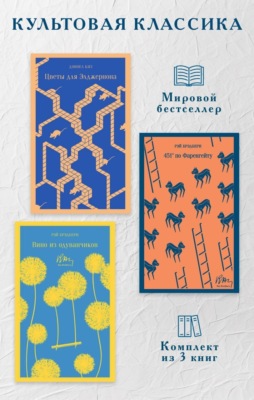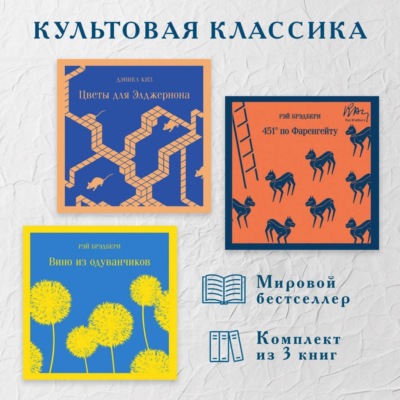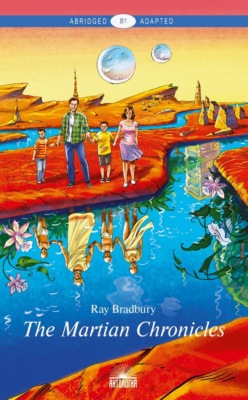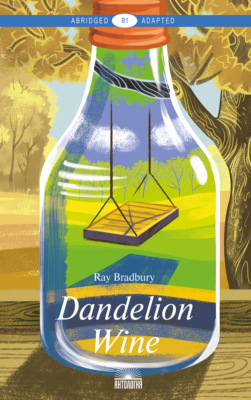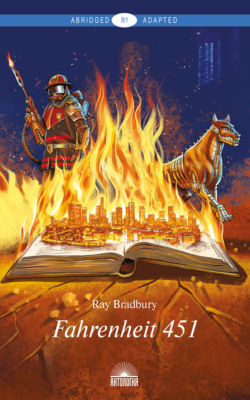Buch lesen: "Long After Midnight"
LONG AFTER MIDNIGHT
Ray Bradbury

Dedication
This book, with love, is dedicated to William F. Nolan, amazing collector, fantastic researcher, dear friend.
Table of Contents
Cover
Title Page
Dedication
The Blue Bottle
One Timeless Spring
The Parrot Who Met Papa
The Burning Man
A Piece of Wood
The Messiah
G.B.S.—Mark V
The Utterly Perfect Murder
Punishment Without Crime
Getting Through Sunday Somehow
Drink Entire: Against the Madness of Crowds
Interval in Sunlight
A Story of Love
The Wish
Forever and the Earth
The Better Part of Wisdom
Darling Adolf
The Miracles of Jamie
The October Game
The Pumpernickel
Long After Midnight
Have I Got a Chocolate Bar for You!
Keep Reading
About the Author
Also by the Author
Copyright
About the Publisher
The Blue Bottle
The sundials were tumbled into white pebbles. The birds of the air now flew in ancient skies of rock and sand, buried, their songs stopped. The dead sea bottoms were currented with dust which flooded the land when the wind bade it reenact an old tale of engulfment. The cities were deep laid with granaries of silence, time stored and kept, pools and fountains of quietude and memory.
Mars was dead.
Then, out of the large stillness, from a great distance, there was an insect sound which grew large among the cinnamon hills and moved in the sun-blazed air until the highway trembled and dust was shook whispering down in the old cities.
The sound ceased.
In the shimmering silence of midday, Albert Beck and Leonard Craig sat in an ancient landcar, eyeing a dead city which did not move under their gaze but waited for their shout:
“Hello!”
A crystal tower dropped into soft dusting rain.
“You there!”
And another tumbled down.
And another and another fell as Beck called, summoning them to death. In shattering flights, stone animals with vast granite wings dived to strike the courtyards and fountains. His cry summoned them like living beasts and the beasts gave answer, groaned, cracked, leaned up, tilted over, trembling, hesitant, then split the air and swept down with grimaced mouths and empty eyes, with sharp, eternally hungry teeth suddenly seized out and strewn like shrapnel on the tiles.
Beck waited. No more towers fell.
“It’s safe to go in now.”
Craig didn’t move. “For the same reason?”
Beck nodded.
“For a damned bottle! I don’t understand. Why does everyone want it?”
Beck got out of the car. “Those that found it, they never told, they never explained. But—it’s old. Old as the desert, as the dead seas—and it might contain anything. That’s what the legend says. And because it could hold anything—well, that stirs a man’s hunger.”
“Yours, not mine,” said Craig. His mouth barely moved; his eyes were half-shut, faintly amused. He stretched lazily. “I’m just along for the ride. Better watching you than sitting in the heat.”
Beck had stumbled upon the old landcar a month back, before Craig had joined him. It was part of the flotsam of the First Industrial Invasion of Mars that had ended when the race moved on toward the stars. He had worked on the motor and run it from city to dead city, through the lands of the idlers and roustabouts, the dreamers and lazers, men caught in the backwash of space, men like himself and Craig who had never wanted to do much of anything and had found Mars a fine place to do it in.
“Five thousand, ten thousand years back the Martians made the Blue Bottle,” said Beck. “Blown from Martian glass—and lost and found and lost and found again and again.”
He stared into the wavering heat shimmer of the dead city. All my life, thought Beck, I’ve done nothing and nothing inside the nothing. Others, better men, have done big things, gone off to Mercury, or Venus, or out beyond the System. Except me. Not me. But the Blue Bottle can change all that.
He turned and walked away from the silent car.
Craig was out and after him, moving easily along. “What is it now, ten years you’ve hunted? You twitch when you sleep, wake up in fits, sweat through the days. You want the damn bottle that bad, and don’t know what’s in it. You’re a fool, Beck.”
“Shut up, shut up,” said Beck, kicking a slide of pebbles out of his way.
They walked together into the ruined city, over a mosaic of cracked tiles shaped into a stone tapestry of fragile Martian creatures, long-dead beasts which appeared and disappeared as a slight breath of wind stirred the silent dust.
“Wait,” said Beck. He cupped his hands to his mouth and gave a great shout. “You there!”
“… there,” said an echo, and towers fell. Fountains and stone pillars folded into themselves. That was the way of these cities. Sometimes towers as beautiful as a symphony would fall at a spoken word. It was like watching a Bach cantata disintegrate before your eyes.
A moment later: bones buried in bones. The dust settled. Two structures remained intact.
Beck stepped forward, nodding to his friend.
They moved in search.
And, searching, Craig paused, a faint smile on his lips. “In that bottle,” he said, “is there a little accordion woman, all folded up like one of those tin cups, or like one of those Japanese flowers you put in water and it opens out?”
“I don’t need a woman.”
“Maybe you do. Maybe you never had a real woman, a woman who loved you, so, secretly, that’s what you hope is in it.” Craig pursed his mouth. “Or maybe, in that bottle, something from your childhood. All in a tiny bundle—a lake, a tree you climbed, green grass, some crayfish. How’s that sound?”
Beck’s eyes focused on a distant point. “Sometimes—that’s almost it. The past—Earth. I don’t know.”
Craig nodded. “What’s in the bottle would depend, maybe, on who’s looking. Now, if there was a shot of whiskey in it …”
“Keep looking,” said Beck.
There were seven rooms filled with glitter and shine; from floor to tiered ceiling there were casks, crocks, magnums, urns, vases—fashioned of red, pink, yellow, violet, and black glass. Beck shattered them, one by one, to eliminate them, to get them out of the way so he would never have to go through them again.
Beck finished his room, stood ready to invade the next. He was almost afraid to go on. Afraid that this time he would find it; that the search would be over and the meaning would go out of his life. Only after he had heard of the Blue Bottle from fire-travelers all the way from Venus to Jupiter, ten years ago, had life begun to take on a purpose. The fever had lit him and he had burned steadily ever since. If he worked it properly, the prospect of finding the bottle might fill his entire life to the brim. Another thirty years, if he was careful and not too diligent, of search, never admitting aloud that it wasn’t the bottle that counted at all, but the search, the running and the hunting, the dust and the cities and the going-on.
Beck heard a muffled sound. He turned and walked to a window looking out into the courtyard. A small gray sand cycle had purred up almost noiselessly at the end of the street. A plump man with blond hair eased himself off the spring seat and stood looking into the city. Another searcher. Beck sighed. Thousands of them, searching and searching. But there were thousands of brittle cities and towns and villages and it would take a millennium to sift them all.
“How you doing?” Craig appeared in a doorway.
“No luck.” Beck sniffed the air. “Do you smell anything?”
“What?” Craig looked about.
“Smells like—bourbon.”
“Ho!” Craig laughed. “That’s me!”
“You?”
“I just took a drink. Found it in the other room. Shoved some stuff around, a mess of bottles, like always, and one of them had some bourbon in it, so I had myself a drink.”
Beck was staring at him, beginning to tremble. “What—what would bourbon be doing here, in a Martian bottle?” His hands were cold. He took a slow step forward. “Show me!”
“I’m sure that …”
“Show me, damn you!”
It was there, in one corner of the room, a container of Martian glass as blue as the sky, the size of a small fruit, light and airy in Beck’s hand as he set it down upon a table.
“It’s half-full of bourbon,” said Craig.
“I don’t see anything inside,” said Beck.
“Then shake it.”
Beck picked it up, gingerly shook it.
“Hear it gurgle?”
“No.”
“I can hear it plain.”
Beck replaced it on the table. Sunlight spearing through a side window struck blue flashes off the slender container. It was the blue of a star held in the hand. It was the blue of a shallow ocean bay at noon. It was the blue of a diamond at morning.
“This is it,” said Beck quietly. “I know it is. We don’t have to look anymore. We’ve found the Blue Bottle.”
Craig looked skeptical. “Sure you don’t see anything in it?”
“Nothing … But—” Beck bent close and peered deeply into the blue universe of glass. “Maybe if I open it up and let it out, whatever it is, I’ll know.”
“I put the stopper in tight. Here.” Craig reached out.
“If you gentlemen will excuse me,” said a voice in the door behind them.
The plump man with blond hair walked into their line of vision with a gun. He did not look at their faces, he looked only at the blue glass bottle. He began to smile. “I hate very much to handle guns,” he said, “but it is a matter of necessity, as I simply must have that work of art. I suggest that you allow me to take it without trouble.”
Beck was almost pleased. It had a certain beauty of timing, this incident; it was the sort of thing he might have wished for, to have the treasure stolen before it was opened. Now there was the good prospect of a chase, a fight, a series of gains and losses, and, before they were done, perhaps another four or five years spent upon a new search.
“Come along now,” said the stranger. “Give it up.” He raised the gun warningly.
Beck handed him the bottle.
“Amazing. Really amazing,” said the plump man. “I can’t believe it was as simple as this, to walk in, hear two men talking, and to have the Blue Bottle simply handed to me. Amazing!” And he wandered off down the hall, out into the daylight, chuckling to himself.
Under the cool double moons of Mars the midnight cities were bone and dust. Along the scattered highway the landcar bumped and rattled, past cities where the fountains, the gyrostats, the furniture, the metal-singing books, the paintings lay powdered over with mortar and insect wings. Past cities that were cities no longer, but only things rubbed to a fine silt that flowered senselessly back and forth on the wine winds between one land and another, like the sand in a gigantic hourglass, endlessly pyramiding and repyramiding. Silence opened to let the car pass, and closed swiftly in behind.
Craig said, “We’ll never find him. These damned roads. So old. Potholes, lumps, everything wrong. He’s got the advantage with the cycle; he can dodge and weave. Damn!”
They swerved abruptly, avoiding a bad stretch. The car moved over the old highway like an eraser, coming upon blind soil, passing over it, dusting it away to reveal the emerald and gold colors of ancient Martian mosaics worked into the road surface.
“Wait,” cried Beck. He throttled the car down. “I saw something back there.”
“Where?”
They drove back a hundred yards.
“There. You see. It’s him.”
In a ditch by the side of the road the plump man lay folded over his cycle. He did not move. His eyes were wide, and when Beck flashed a torch down, the eyes burned dully.
“Where’s the bottle?” asked Craig.
Beck jumped into the ditch and picked up the man’s gun. “I don’t know. Gone.”
“What killed him?”
“I don’t know that either.”
“The cycle looks okay. Not an accident.”
Beck rolled the body over. “No wounds. Looks like he just—stopped, of his own accord.”
“Heart attack, maybe,” said Craig. “Excited over the bottle. He gets down here to hide. Thought he’d be all right, but the attack finished him.”
“That doesn’t account for the Blue Bottle.”
“Someone came along. Lord, you know how many searchers there are….”
They scanned the darkness around them. Far off, in the starred blackness, on the blue hills, they saw a dim movement.
“Up there.” Beck pointed. “Three men on foot.”
“They must have …”
“My God, look!”
Below them, in the ditch, the figure of the plump man glowed, began to melt. The eyes took on the aspect of moonstones under a sudden rush of water. The face began to dissolve away into fire. The hair resembled small firecracker strings, lit and sputtering. The body fumed as they watched. The fingers jerked with flame. Then, as if a gigantic hammer had struck a glass statue, the body cracked upward and was gone in a blaze of pink shards, becoming mist as the night breeze carried it across the highway.
“They must have—done something to him,” said Craig. “Those three, with a new kind of weapon.”
“But it’s happened before,” said Beck. “Men I knew about who had the Blue Bottle. They vanished. And the bottle passed on to others who vanished.” He shook his head. “Looked like a million fireflies when he broke apart ….”
“You going after them?”
Beck returned to the car. He judged the desert mounds, the hills of bone-silt and silence. “It’ll be a tough job, but I think I can poke the car through after them. I have to, now.” He paused, not speaking to Craig. “I think I know what’s in the Blue Bottle…. Finally, I realize that what I want most of all is in there. Waiting for me.”
“I’m not going,” said Craig, coming up to the car where Beck sat in the dark, his hands on his knees. “I’m not going out there with you, chasing three armed men. I just want to live, Beck. That bottle means nothing to me. I won’t risk my skin for it. But I’ll wish you luck.”
“Thanks,” said Beck. And he drove away, into the dunes.
The night was as cool as water coming over the glass hood of the landcar.
Beck throttled hard over dead river washes and spills of chalked pebble, driving between great cliffs. Ribbons of double moonlight painted the bas-reliefs of gods and animals on the cliff sides all yellow gold: mile-high faces upon which Martian histories were etched and stamped in symbols, incredible faces with open cave eyes and gaping cave mouths.
The motor’s roar dislodged rocks, boulders. In a whole rushing downpour of stone, golden segments of ancient cliff sculpture slid out of the moons’ rays at the top of the cliff and vanished into blue cool-well darkness.
In the roar, as he drove, Beck cast his mind back—to all the nights in the last ten years, nights when he had built red fires on the sea bottoms, and cooked slow, thoughtful meals. And dreamed. Always those dreams of wanting. And not knowing what. Ever since he was a young man, the hard life on Earth, the great panic of 2130, the starvation, chaos, riot, want. Then bucking through the planets, the womanless, loveless years, the alone years. You come out of the dark into the light, out of the womb into the world, and what do you find that you really want?
What about that dead man back there in the ditch? Wasn’t he always looking for something extra? Something he didn’t have. What was there for men like himself? Or for anyone? Was there anything at all to look forward to?
The Blue Bottle.
He quickly braked the car, leaped out, gun ready. He ran, crouching, into the dunes. Ahead of him, the three men lay on the cold sand, neatly. They were Earthmen, with tan faces and rough clothes and gnarled hands. Starlight shone on the Blue Bottle, which lay among them.
As Beck watched, the bodies began to melt. They vanished away into rises of steam, into dewdrops and crystals. In a moment they were gone.
Beck felt the coldness in his body as the flakes rained across his eyes, flicking his lips and his cheeks.
He did not move.
The plump man. Dead and vanishing. Craig’s voice: “Some new weapon …”
No. Not a weapon at all.
The Blue Bottle.
They had opened it to find what they most desired. All of the unhappy, desiring men down the long and lonely years had opened it to find what they most wanted in the planets of the universe. And all had found it, even as had these three. Now it could be understood, why the bottle passed on so swiftly, from one to another, and the men vanishing behind it. Harvest chaff fluttering on the sand, along the dead sea rims. Turning to flame and fireflies. To mist.
Beck picked up the bottle and held it away from himself for a long moment. His eyes shone clearly. His hands trembled.
So this is what I’ve been looking for, he thought. He turned the bottle and it flashed blue starlight.
So this is what all men really want? The secret desire, deep inside, hidden all away where we never guess? The subliminal urge? So this is what each man seeks, through some private guilt, to find?
Death.
An end to doubt, to torture, to monotony, to want, to loneliness, to fear, an end to everything.
All men?
No. Not Craig. Craig was, perhaps, far luckier. A few men were like animals in the universe, not questioning, drinking at pools and breeding and raising their young and not doubting for a moment that life was anything but good. That was Craig. There were a handful like him. Happy animals on a great reservation, in the hand of God, with a religion and a faith that grew like a set of special nerves in them. The unneurotic men in the midst of the billionfold neurotics. They would only want death, later, in a natural manner. Not now. Later.
Beck raised the bottle. How simple, he thought, and how right. This is what I’ve always wanted. And nothing else.
Nothing.
The bottle was open and blue in the starlight. Beck took an immense draught of the air coming from the Blue Bottle, deep into his lungs.
I have it at last, he thought.
He relaxed. He felt his body become wonderfully cool and then wonderfully warm. He knew he was dropping down a long slide of stars into a darkness as delightful as wine. He was swimming in blue wine and white wine and red wine. There were candles in his chest, and fire wheels spinning. He felt his hands leave him. He felt his legs fly away, amusingly. He laughed. He shut his eyes and laughed.
He was very happy for the first time in his life.
The Blue Bottle dropped onto the cool sand.
At dawn, Craig walked along, whistling. He saw the bottle lying in the first pink light of the sun on the empty white sand. As he picked it up, there was a fiery whisper. A number of orange and red-purple fireflies blinked on the air, and passed on away.
The place was very still.
“I’ll be damned.” He glanced toward the dead windows of a nearby city. “Hey, Beck!”
A slender tower collapsed into powder.
“Beck, here’s your treasure! I don’t want it. Come and get it!”
“… and get it,” said an echo, and the last tower fell.
Craig waited.
“That’s rich,” he said. “The bottle right here, and old Beck not even around to take it.” He shook the blue container.
It gurgled.
“Yes, sir! Just the way it was before. Full of bourbon, by God!” He opened it, drank, wiped his mouth.
He held the bottle carelessly.
“All that trouble for a little bourbon. I’ll wait right here for old Beck and give him his damn bottle. Meanwhile—have an other drink, Mr. Craig. Don’t mind if I do.”
The only sound in the dead land was the sound of liquid running into a parched throat. The Blue Bottle flashed in the sun.
Craig smiled happily and drank again.
Die kostenlose Leseprobe ist beendet.
